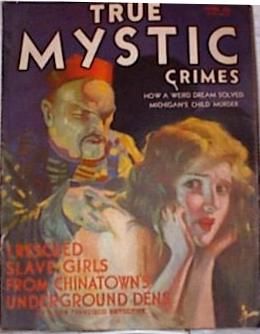Law and Crime
Which Sex Favors True Crime Stories?
Why women prefer the true crime genre.
Posted June 28, 2012

The "True Crime" genre is often a staple of summer reading season. Gory, gruesome, and gut wrenching, the genre encompasses true stories of murder, rape, and other savagery.
Take a guess: Which sex is more likely to be drawn to the true crime genre? In other words, are you more likely to see a man or a woman with a true crime book under that beach umbrella?
This is an interesting question that was recently addressed in a paper published in the journal Social Psychological and Personality Science (Vicary and Fraley, 2010). On the one hand, the authors note, we might think men would be more likely to read from this genre, since they tend to be the more violent sex. On the other hand, maybe women might be more attracted to the genre because of the survival tips they might glean from reading such accounts. This latter idea has been put forward by the evolutionary psychologist David Buss.

In their first study, the authors surveyed literary web sites, and found that reviews of books in the true crime genre tended to be written by women more often than by men. This, of course, tells us little: maybe women simply read more than men (there is evidence for this), or maybe women are more likely to post reviews of what they read. The authors thus conducted a second study through their own website, in which they gave male and female participants a choice of either "Violence in Paradise: A True Account of the Murders That Shocked Hawaii," or "Dangers of War: A True Story of an Army Unit Serving in the Gulf War.” Other participants were given a choice between Violence in Paradise and "Dangerous: The True Story of L.A. Gang Members." Dangers of War and Dangerous were chosen as the alternatives to the Violence in Paradise book because they also contained themes of violence and realism, while not being in the True Crime category per se.
The results showed that women overwhelmingly preferred the true crime option. Among female participants, 77% of women chose the true crime book, but only 23% chose the war book. For the other pair, 73% of women chose the true crime book, and 27% chose the gang book. Among men, 51% chose the true crime book over the war book (49%), and 57% chose the true crime book over the gang book (43%). Thus, men showed a much less marked preference for the true crime genre, whereas this preference was clear for women.
So, why would women be drawn to the true crime genre? To address this question, the authors experimentally manipulated features of the stories to examine readers' preferences. In a third study, the authors asked participants to choose between two different true crime books, and offered short descriptions of each book. Unbeknownst to the participants, one of the two descriptions contained information about how the protagonist got away from the killer (e.g., by using a pin from a watch to remove a pair of handcuffs). The other description, though similar, didn't contain information on any survival tricks. With this simple manipulation, 71% of women chose the book with the survival trick, compared to 29% who did not. For men, the difference was still significant, but more even (66% chose the book with the survival trick description). In yet another study, the researchers either included or did not include information about the motivations and thought processes of the criminals. Among women, 65% chose the book that promised to reveal psychological insights on the criminals, while 35% chose the other book. Among men, the more temperate pattern again emerged: 59% of men chose the book with motives, compared to 41% who chose the book without motive information.
All in all, the researchers provided a compelling case that women prefer true crime stories, and that they do so because the books may provide important information and survival strategies should they ever be in a dangerous situation.
You can follow my posts through twitter or facebook.
Copyright 2012 by R. Mendoza-Denton (MCN: BS8Y4-PNV7V-EVK9V); all rights reserved.


